In team-based games like League of Legends and Team Fortress 2, and MMOs like World of Warcraft, support classes — medics, buffers, debuffers and so on — are a necessary element of victory. However, they’re under-appreciated and sometimes under-played. Overwatch addresses that problem in some smart ways, but it doesn’t completely solve the problem.
Image credit: Subject Games.
Whether in single or multiplayer games, support classes have long been considered the least popular kids at gaming’s table. And why not? While DPS (damage-per-second) and tank classes are out making huge plays and soaking up surefire death, supports tend to lurk in the back or to the sides, healing, buffing, and shielding. Their jobs are equal parts stressful and inglorious. They’re the janitors, the metal band bass players, the people who ensure wacky waving inflatable arm-flailing tube men ad displays don’t soar into traffic and cause the most hilarious tragedy of 2016.
They’re easy to take entirely for granted, unless, of course, they’re doing their job poorly. Then they become a tank of a sort, sponging up the rest of the team’s blame for a crappy performance that may not have entirely been their fault. Certainly, MOBAs like League of Legends and DOTA 2 have spiced up the lives of supports through variety and more nuanced mechanics, and games like Destiny sorta rolled them into other classes, but we still live in a world where starry eyed children dream of growing up to be astronauts, firemen, and minigun-toting glory hogs.
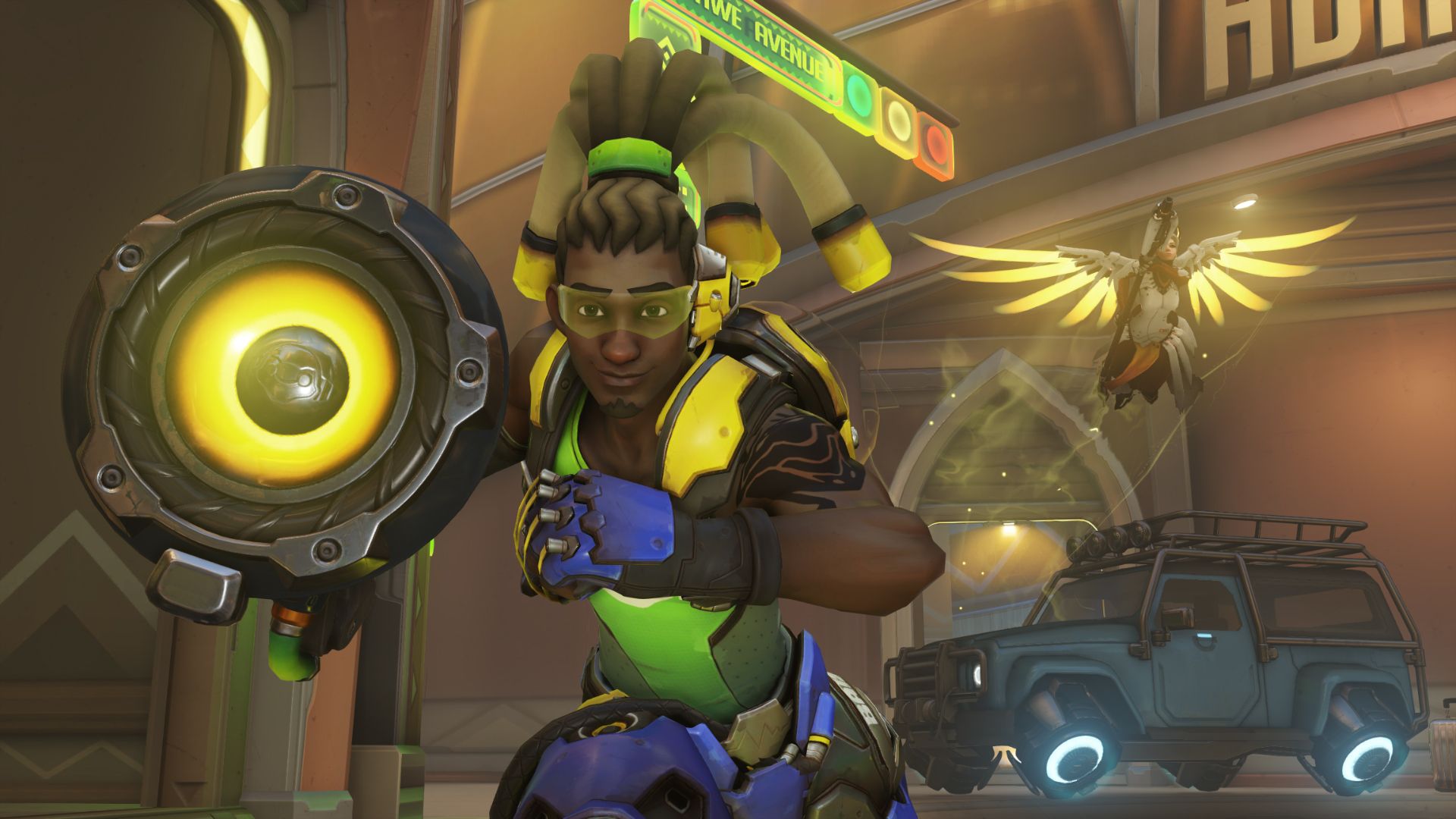
As soon as I started playing Overwatch, I noticed something. At the post-game commendations screen, it sure seemed like supports received the truest form of love of all — upvotes — from friends and foes the majority of the time. I decided to start keeping count. 30 games later, I found that characters like Mercy and Lucio (and more infrequently, less easy-to-heal-everybody-with folks like Zenyatta and Symmetra) got the highest number of commendations 57 per cent of the time. I admit that it wasn’t the most scientific method ever, but I still think the results are telling.
It’s not an overwhelming majority, but it’s a big improvement from, well, not much at all. Blizzard built a system into their game that succinctly shows players just how much of an impact supports (mainly healers) have on matches. Players are, in turn, grateful, and that is, in turn-er, great!
On top of that, most of Overwatch‘s supports don’t play like typical supports. Mercy is the only pure medic, but she’s also remarkably nimble and capable of buffing damage. Lucio can constantly heal all nearby teammates or boost their speed while dealing damage himself. He also has sweet roller blades and can use them to escape from giant holes, which is the main reason roller blades were originally invented. Zenyatta can focus healing on a single ally, debuff a single enemy, and ult everybody to a state of near invincibility for six seconds. He’s also not completely hopeless in a fight. Symmetra isn’t even a healer. She aids defence with turrets (tip: place them on flanks every time) and shaves precious seconds off pushes with her portal. Oh, and then there’s Zarya, who’s not classified as a support, but is essentially a tank/support hybrid. The list goes on.
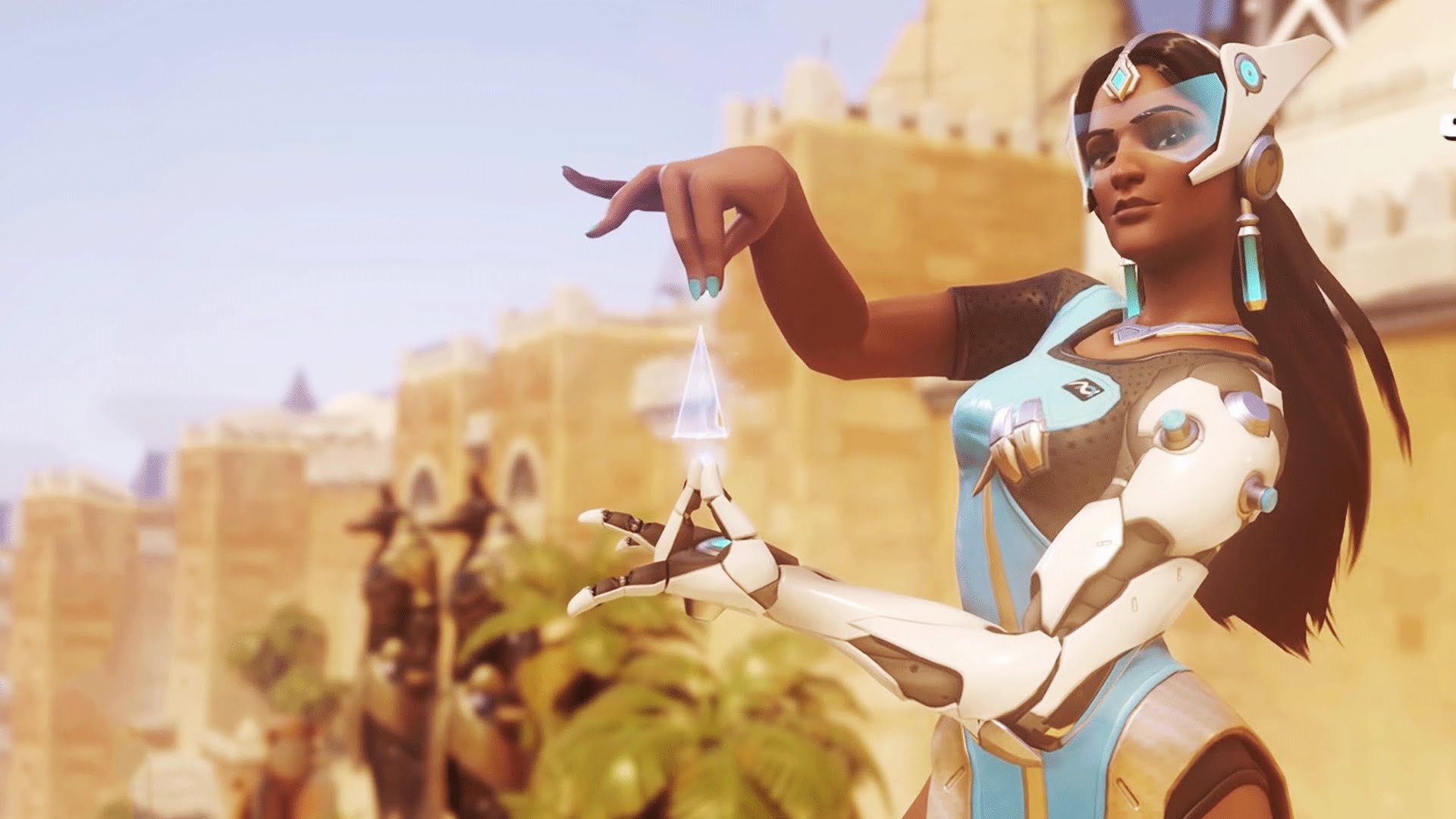
And then there are subtle things like map design. Try to find a map where Symmetra can’t lay down a decently effective turret setup, or Lucio can’t manoeuvre, or Zenyatta can’t craftily work his magic just out of harm’s reach. No map is perfect, but it’s clear that Blizzard put a lot of thought into each characters’ viability on them.
Naturally, some players who don’t play supports in other games have found themselves tempted, even converted by Overwatch. That’s great. Supports deserve just as much love as traditionally more exciting classes from both players and developers. Along the way, players might even learn support’s deep, dark secret: It’s fun to help other people. It feels good, especially when teammates (and even opponents) appreciate your hard work. The bond a good healer-tank duo shares? There’s nothing else quite like it.
In my experience, however, Overwatch still isn’t in an ideal place with its supports. There are a couple key issues. First, while players can vote to show their appreciation after matches, they’re not always incentivized to cooperate with or even focus on supports mid-match. At least, not in a way that produces results. Playing Mercy, especially, can be a crapshoot. Sometimes you’ll play with a team that Gets It, whose tank(s) and damage-dealers keep her shielded and out-flank her flankers.
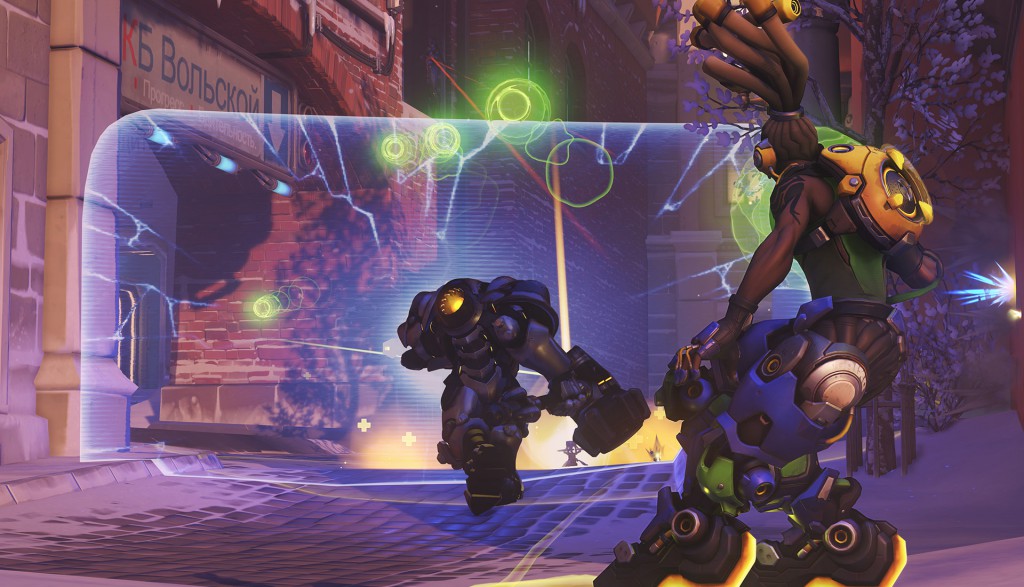
Other times, they will just try to smash everything and expect Mercy to clean up after. Hey Reinhardt, why not block me with your holo-shield that’s 20 times my size and, no, you’re gonna charge 9.14m away from me, your lifeline, into certain doom? OK then. Yo Roadhog, you wanna yank this Genji off me? Oh, you don’t? McCree, Tracer — anyone wanna help?
Where some additional prominent “DEFEND YOUR DAMN HEALER OR YOU WILL DIE” signage throughout Overwatch might help that situation, I feel like some players (especially newer ones) are simply confused by the likes of Lucio, Zenyatta, and Symmetra. Their roles aren’t as clearly delineated as Mercy’s, not to mention pretty much everyone else in the game. For example, you should almost always make sure you’ve got a healer before picking Symmetra, even though she’s listed as a support. That kind of thing.
I feel like it’s sometimes not enough to follow in-game tips to figure out how to play as and with these characters. You’ve gotta seek out knowledge. You’ve gotta be willing to go the extra mile. On the upside, I think a lot of players are willing, as Overwatch is a game that encourages you to have at least a working knowledge of every character. But those who aren’t end up affecting matches’ overall quality, especially for the support players in question.
There are also smaller issues, like the fact that Play Of The Game doesn’t do a great job of highlighting clutch heal moments, nor can it really capture the ramifications of great sustained Symmetra, Mercy, Lucio, or Zenyatta play. In that respect, Overwatch still feels like a game designed with damage dealers, tanks, and Bastion in mind first and foremost. On the upside, Blizzard says they’re working on it, but it remains to be seen what sorts of changes that work will bring.
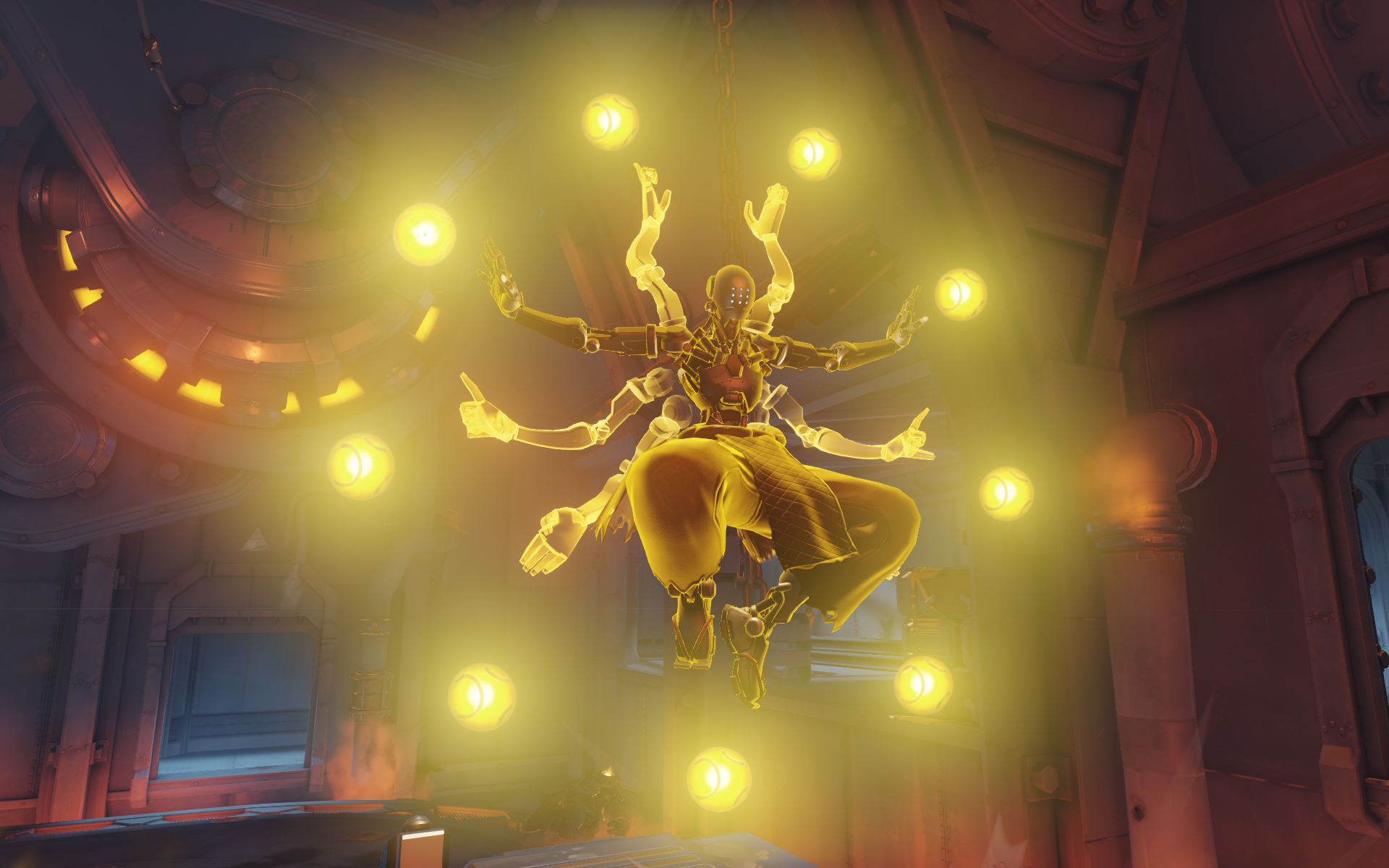
As a result of these things, I often find that players will reach the end of the pre-game character selection process, only to find a big support-shaped hole in the team’s heart. When I decide to bite the bullet (and, depending on my team’s ability to defend, sometimes many more), it’s hard not to feel locked into the role for the rest of the game. At the very least, we need one healer, and nobody else wants to do it. At that point, I don’t really have a choice.
I’m glad Blizzard has taken so many steps to make playing as a support character more appealing, and I enjoy receiving a good deal of post-match appreciation for it. But there’s still more work to be done, some of it subtle, some of it all-encompassing. Overwatch is off to a good start. Now it’s time to see if they can really, truly do this all day.
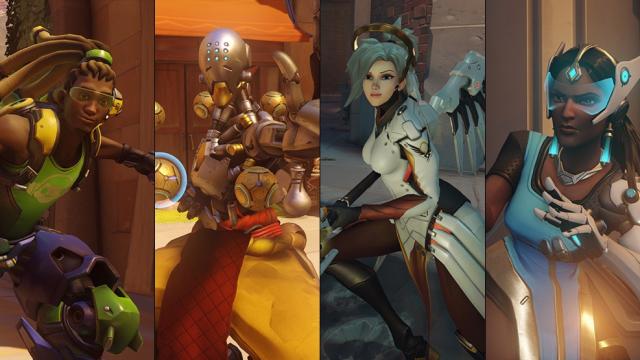
Comments
29 responses to “Overwatch Doesn’t Do Enough For Its Support Heroes”
Unless there was an outstanding performance from my team that stood head and shoulders above everybody else and cinched the win, I will always up vote the supports at the end because I like using Symmetra an you can feel like you go unnoticed at times as support.
I usually main support in team games like this. The reason being as stated here, no one usually wants to do it. So i usually pick up the role because if nothing else, you’ll be wanted.
But it does piss me off how if you’re a good support, no one cares, because you’re support. But the minute you’re a bad support, holy crap. Everything wrong that happens in the game is on you.
It is nice in overwatch that more often than not, if i make it to the upvote screen for my healing i usually receive some good thumbs ups, that atleast show’s appreciation for a role that is REALLY damn stressful, and that’s something i think people over look. They think just because you’re not tracking a target to out maneuver and shoot them that your jobs easy. But for all those healers that have ever been caught out in the middle of a team fight, you’ll know just how stressful it is for a healer. Trying to dodge incoming fire, while simultaneously keeping an active eye on FIVE health bars. Then when it comes down to it, prioritizing healing targets in a split second to try and keep as many people alive as possible. It’s more stressful than people give it credit for.
My other major gripe as stated here too is protect your damn healers!. If you have a mercy healing you, her health bar literally appears on your screen. Pay attention to it. To many people ignore the tracer or reaper who makes their way to the back line and pick off the supports, usually thinking if they just keep pushing forward they’ll force them back into the team fight to defend.
At least Mercy has a sweet gun that can actually do some damage at range (a bit like D.Va’s gun but better IMO). I love when enemy ignores me as Mercy and then I pop them in the back…lol
As someone who pretty much always plays support in any genre (MMO Healer, etc.) its nice to get a bit of recognition and I can say that when I run with Mercy or Lucio and do a great deal of healing then the upvotes come in. But conversely, I still don’t subscribe to the always upvote supports that seems to go on sometimes, if I’ve only healed 2000 points, thats not an outstanding match, it either means I had an off game or my team didn’t get hit much. Give the upvotes where they are deserved, not just for the sake of it.
Also, I’ve only ever seen 1 Mercy PotG and it was a clutch full team res on the last capture point to secure a push in overtime. Definitely a worthy PotG.
I found the post game commendations doesn’t show support all the time. I’m pretty sure there’s some precedence thing happening which makes sense given how much data is being tracked.
The other thing that seems common is that support basically equals healing, I don’t think I’ve ever seen Symmetra shield show up in commendation (like amount absorbed or something along that line)
my WoW guild leader once said that the best healers are the ones that no one talks about. at the end of the day, I think that still holds true (because if you’re doing well everything will be going so smoothly that nobody notice anything ) and playing support tends to be thankless especially in a pick up group environment.
I used to tank a lot in my wow days and I used to love my healers, I could see how much they were doing to keep me up but tended to notice dps didn’t notice it.
I’ve never been big on support, closest being tanking but in overwatch I’ve been enjoying mucking around with mercy, she is fun to play.
Unless your team all runs off in different directions.
The bond between tank and heals is a magical thing, and one of my favourite parts of fulfilling either role in MMOs. Healers really notice when a tank is properly mitigating and freeing them up to do spot-heals on DPS, and tanks really notice when they flub a CD and still survive, or pull adds off a reckless DPS and the heals can compensate for their overreach.
You get into a good rhythm in something intensely difficult, and you end up even learning each others’ cooldowns. Like, heals will see the tank pop a CD and know that the tank is telling them, “It’s cool, I’ve got this for a minute, you can take care of those DPSers in trouble.” But it’s unspoken. And perhaps because of that, it’s deeply satisfying.
Please stop… You’re making me want to pick up an mmo again… I really can’t go back, I don’t have that free time anymore 😛
Pssst! Hey kid. Wanna try some Dota?
It is seriously annoying when they do. Like when we need to hold a point for that 100% thing and my entire team decides to run off like it’s team deatchmatch leaving me alone as mercy or lucio guarding the point. And then even after grouping up not a single one of them has the guts to actually attack the point, leaving me again as the healer to basically spearhead the attack.
When the players on my side actually knows that the healer needs protecting we do so much better.
I’ve seen Symmetra’s shield commendation appear, but it is number of teammates shielded and uptime rather than damage blocked.
I like to play a mix of roles dependant on my teams composition so I have been on both ends of the spectrum.
But I can say the way healers are targeted in a game you would think that someone had the foresight to say “Hey if we are going after their healer like this what is going on with ours?”.
Every couple of games I get into I will have a Reinheart and a dos like 76 or tracer who just get it. Reinheart protects me from frontal attacks whilst breaking he line and a dps covers the flanks while I debuff/heal/dps with Zenyatta. And these are he maps which we destroy the opposite team.
My suggestion is if you like playing the support role and you find a team that just gets it, friend them and start playing more games with them. You will win more and the game starts to feel much more satisfying.
On a side note I do find it funny when I get to the post match screen after playin zenyatta and I get dos stats rather than healing stats and get medals in both damage and heals. And my team are like “OMG shit healer doesn’t even heal and tries to dps!” And I’m like but did you die?
When I played healers in MMOs… you get a thankyou for rezzing people,especially from people who die standing in fire. I always replay “Well if you only say thanks for rezzes, where is my reason to keep you alive in the first, so please keep finding dumb ways to die I need the love”
Then there is always the game red light green light… yell out Red Light and stop healing and see how low you can get someones health without them dying. Yell green light and use your largest heal. Respekt!
Props to blizzard in making support toons actually fun to play as well.
Zooming around as mercy or Lucio, keeping everyone up, being the enabler for their clutch plays. It’s fun.
If your team actually plays as a team anyway, yeah.
We supporters don’t do it for the glory, the accolades or the “plays of the games”, we do it for the LOVE!
I don’t mind playing Support class, as much as I want to play my favorite class Ill play support just to support the team.
Although last few times I’ve played support, people have actually voiced chatted ‘Thanks for healing mate’. People actually thanking me for healing which is becoming more common for me, gives me a sense of doing something good for the team and gives me incentive to play them again (I can play Mercy and Symettra pretty well).
Having said that I have seen some teams don’t give a rats about healers, they run off and then spam ‘need healing’ when I cant get to them as they surrounding by entire enemy team cause they ran off by themselves.
Play of the game should be fixed to include game changing support plays.
Incredibly frustrating when your a character like mei who turns the game around at the last second (you know when it get’s to that critical overtime stage) something like stalling the timer by being in the capture zone whilst you heroically hold the point while getting a few sweet kills in the process and blocking projectiles/ults with your wall until your team mates arrive.
Only to find the play of the game goes to the opposite teams Widowmaker for getting 2 camped kills right at the start of the match….
There is a hidden score tracked for several different things in the game, and ultimately whoever ends up with the highest score will be shown as Play of the Game. Blizzard COULD tweak things to make things like multi-resurrections score more points, but as it stands, the game already does try to reward a diverse set of interactions. Just this morning I watched Mercy get Play of the Game for getting a triple resurrection.
Watched a Reaper pkay of the game… he killed one person died, was rezzed and then ultimated but would of died instantly on the first “DIE” if it wasnt for mercy.. Play of the game was Mercy.
exactly!
Got a Zenyatta play of the game yesterday by ult-healing two of my teammates through Pharah’s ult barrage, then killing their Mercy.
Also, a couple tips for dps players to enable getting heals:
Your healer is probably gonna stick around the tank, so you should too. Especially if it’s a Lucio.
But I’m not coming to help you if you just went balls deep.
Don’t be afraid to hit that “heal me plz!” button if you’re in the back since heals focus on the front line. But please don’t spam it.
If you’re a sniper in need of heals, try to move close to the edge of wherever you are up on – your mercy can’t get to you otherwise, and Lucio heals don’t travel up very well.
I’ve never once seen Mercy get a Play of the Game and I’ve seen the others very rarely get one, but only on a series of lucky kills. Play of the Game should be about contribution …. not kills. We played against a team the other day where an opposing Mercy turned the game around by mass rezzing her entire team on a capture point. Awesome move. We lost because of it …. and yet the game gave her no credit for that move.
I’ve seen about 3 PoTG by mercy, almost all of which were 3+ Ressurections at once.
It would be nice if the PotG was less weighted towards multikills/Ultimates. I had a match where I ended up using Whole Hog to knock 4 enemies out of the capture point during overtime to allow us to cap it and win, only for PotG to go to a Bastion who killed two enemies. Likewise, I’ve watched a Pharah float above an objective, nearly kill 4 people and force every enemy away, only for the PotG to go to a McCree with a 2-kill Ultimate.
I leaned towards support quite a bit simply because I noticed if I was support I would win at least 80% of my games but if I went DPS it was about 50/50.
I play with real life friends in a team since open beta and always play support, not because no one else wants to do it but because they are much better at offense than I am.
Mercy was my go to hero because of the Rez ultimate that could change the tide of the game which got me a few potg’s if I rezzed 4 or more but I’ve been using lucio for the last 15 hours and while lacking the direct heals, the speed boost and knockback make up for that, and when you hear bastion or and offensive hero hit their ultimate while your team holds the point, those shields can get them through major damage without vacating the area.
Also a well timed push with shields and knock backs have lead to to quite a few potg’s so blizzard haven’t forgotten to show us some love.
The main reason I play Lucio is because the sound his weapon makes is so damn cool.
I generally run with Mercy. I play support because 9/10 my team will win the game because I am actively healing. What annoys me is when I get sick of healing everyone and want to try an offensive character no one plays medic. Very frustrating.
“Playing Mercy, especially, can be a crapshoot. Sometimes you’ll play with a team that Gets It”
You could say “sometimes your team knows how to work together and sometimes they don’t” about any character.
Also like any class, I find supports are appreciated when they do well. And it’s usually easier to see a support doing well then an attack class cause even if they don’t get play of the game, people notice if they get healed or ressed a lot, especially at critical moments. I don’t need to read the cards at the end of the game to pick the support who kept me alive so many times when I would have died – and then went on to kick but because of it.
I played as Lucio the other day and healed 60% of my teams damage. I received no love from my team 1 self loce vote. Ive noticed people seem to be voting less on ps4.